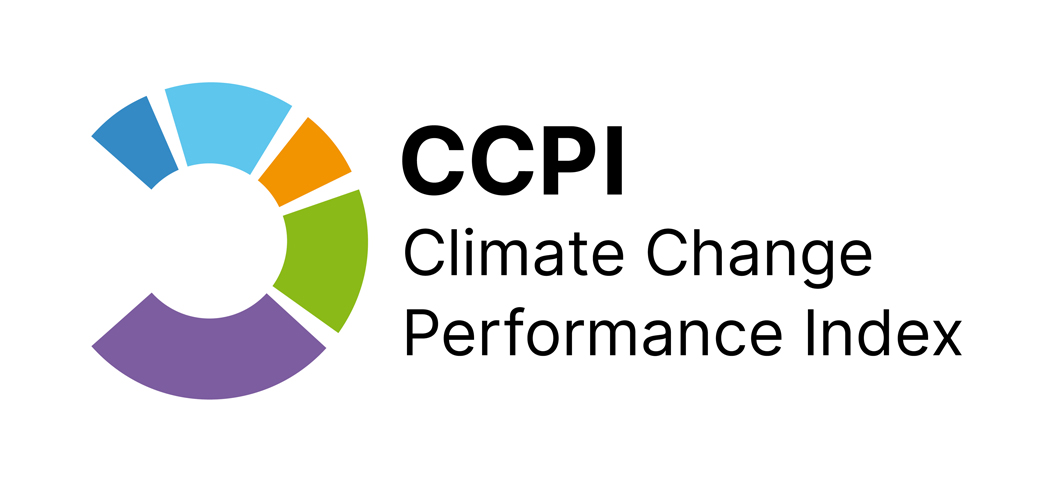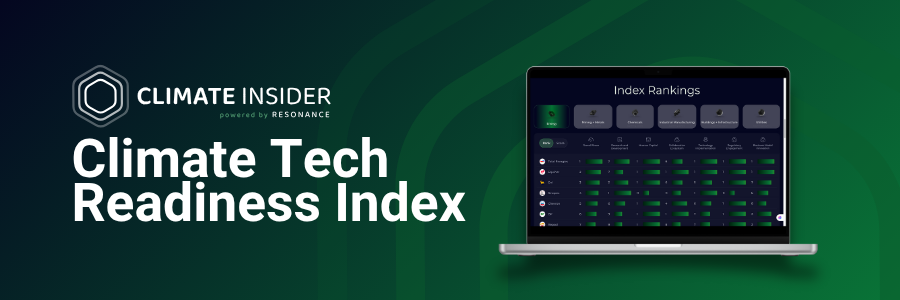Climate Insider Brief:
- The Climate Change Performance Index (CCPI) 2025 highlights progress in renewable energy adoption, with 61 of 64 assessed countries increasing their renewable energy share over five years.
- Denmark leads the rankings (4th) with strong climate policies, followed by the Netherlands (5th) and the UK (6th), which saw significant improvement.
- Conversely, countries like Argentina, Russia, and Saudi Arabia rank at the bottom due to limited renewable adoption and pro-fossil policies.
PRESS RELEASE – Baku, Azerbaijan / Nov 20, 2024 – Renewable energy is making rapid progress in almost every high-emitting country. However, too many countries are still clinging to prolonging the fossil fuels business model, especially for gas. This is shown in the Climate Change Performance Index (CCPI 2025) published today by Germanwatch, NewClimate Institute, and CAN International. Each year, the CCPI assesses the progress made by the largest emitters worldwide in terms of emissions, renewables and climate policy. The 63 countries plus the European Union assessed in the CCPI are responsible for 90% of global emissions. This year, the CCPI paints a mixed picture: While 61 of the 64 countries have increased the share of renewables in their energy mix over the past five years, emission trends in 29 countries are still rated low or very low.
The top three ranks remain vacant as in previous years. Countries still need to accelerate climate action to align with the temperature limit of the Paris Agreement. Denmark remains the top-ranked country (4th). It was also the only country to achieve high performance in the climate policy rating. Still, Denmark does not perform well enough to earn an overall very high rating. Denmark is followed by the Netherlands (5th), although its new government bodes ill for climate policy. The United Kingdom was this year’s big climber and took 6th place. The coal phase-out and the government’s pledge against new licences for fossil fuel projects played a key role in its rise.
Unfortunately, these efforts are not visible everywhere. The example of Argentina (59th), one of the biggest losers of this year’s CCPI, shows how a change of government can cause a step change in the wrong direction: Argentina is among the lowest-ranked countries. Its newly elected president denies human-made climate change, despite scientific consensus. The four last-placed countries in the CCPI are Iran (67th), Saudi Arabia (66th), the United Arab Emirates (65th) and Russia (64th). All four are among the largest oil and gas producers worldwide. The share of renewables in their energy mix is lower than 3%. These countries show no sign of departing from fossil fuels as a business model.

Jan Burck (Germanwatch), author of the CCPI:
‘Large parts of the world have recognised that renewables are a cost-effective and safe choice for the energy supply. Renewables are in the fast lane, especially in the electricity sector. In addition, there is an increasing electrification of the mobility, residential and industrial sectors. The trend towards electrification is continuing, while new storage technologies are developing at the same time. Nevertheless, there is still massive resistance from the fossil fuel lobby. Countries should not fall deeper into the fossil trap.’
Co-author Prof. Niklas Höhne (NewClimate Institute) adds:
‘The world is at a turning point. Peak of global emissions is closely in sight. Now it is crucial that we start a rapid decline. Cutting emissions drastically is the only measure that can prevent further dangerous consequences of climate change. Time is running and we urgently need an emission turnaround.’
China – Massive expansion of renewables sends signals worldwide
The world’s biggest emitter China ranks 55th in the CCPI, falling to a very low level. Despite promising plans, trends and measures, China remains heavily dependent on coal and lacks sufficient climate targets. However, we are experiencing an unprecedented boom in renewable energies and emissions appear to have almost peaked.
The US, the second biggest emitter, remains in 57th place among the very low performers. More investment in renewables and clean transport, as well as an end to fossil fuel subsidies would be important next steps. However, the outcome of the election now might determine climate performance in the US for the coming years. Burck: ‘Politically, it will be difficult for Trump to end green future technologies from Biden’s Inflation Reduction Act, but he will probably weaken them.’
With the UK and India (10th), only two G20 countries are among the high performers in the CCPI. Fourteen G20 countries receive an overall low or very low. The G20 is particularly responsible for drastically cutting emissions, as its members account for more than 75% of the world’s greenhouse gas emissions. Russia, Saudi Arabia and South Korea (63th) are still the G20’s worst-performing countries and receive an overall very low.
EU: Green Deal shows effect – not a very low-performer among them
Höhne: ‘Especially with a new US President Trump, we now need strong leadership from the EU and its memberstates like Germany, despite increasing political polarisation.’ With Denmark and the Netherlands at the top of the CCPI, the EU (17th) as a whole is in the upper middle field. Sixteen EU countries are among the high and medium performers and, unlike in previous editions, no EU country receives an overall very low rating.
Germany (16th), the largest economy in the EU, has slipped two places and is no longer a high performer. Thea Uhlich, co-author of the CCPI: ‘Although considerable progress has been made in renewables, the political inaction in the transport and building sectors still leads to high emissions. Climate action in Germany and the EU should not be sidelined by the current global political developments, particularly in climate finance.’
Janet Milongo, Senior Manager – Energy Transition, Climate Action Network International, states:
‘Energy inequity continues to be a reality for many people in the world. It is unacceptable that the Netherlands, for example, has more solar power installed than the whole of Africa. Leaving any peoples or countries behind in the transition results in injustice and frustrates the achievement of global goals. Public grant-based finance is critical to ensure a rapid, just and equitable transition to renewables for all.’
Source: NewClimate Institute
Featured Image: Credit: NewClimate Institute








